Health
The Secret Powers and Uses of Garlic In Fighting Cancer
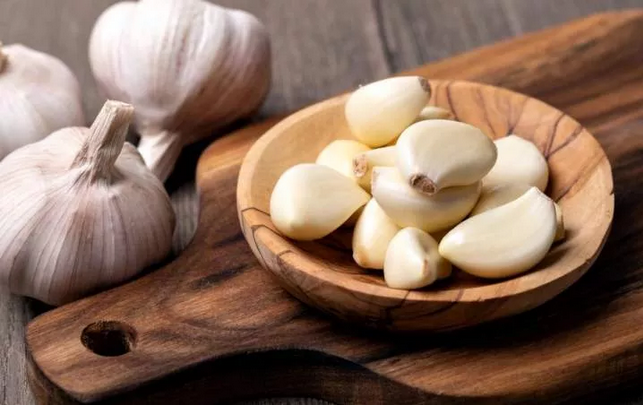
Garlic is believed to have the power in preventing cancer, it is for a fact that recent studies have proven it to fight certain types of cancer And even though research is a continuous process, most studies have found out that consuming garlic may be associated with a reduced risk of certain types of cancer, including stomach, colon, prostate, and breast cancer. The fibre in garlic helps to avoid the spread of tumours amidst many usefulness which will be discussed here.....Read Full Article>>
In addition to its potential anti-cancer effects, garlic also has other health benefits, such as reducing inflammation, lowering cholesterol levels, and boosting the immune system.
It’s also important to consume garlic as part of a balanced diet, this does not imply excessive take, except if otherwise by your physician. And the interesting thing about Garlic, is its natural roots.
This is what happens when you eat garlic.
Anti-inflammatory effects: Garlic contains tissues that can reduce inflammation in the body, which is thought to be a contributing factor to the development of cancer. By reducing inflammation, garlic may help to prevent the growth and spread of cancer cells.
Antioxidant effects:
Garlic contains antioxidants that can help to protect cells from damage caused by free radicals, which can contribute to the development of cancer. Antioxidants can neutralise free radicals and prevent them from causing damage to DNA and other cellular components.
Induction of cell death: Garlic has been shown to induce programmed cell death (apoptosis) in cancer cells, which can prevent the growth and spread of cancer cells.
Inhibition of angiogenesis:
Garlic contains compounds that can inhibit the formation of new blood vessels (angiogenesis) that are necessary for the growth and spread of cancer cells.
DNA repair: Garlic contains tissues that can help to rework damaged DNA, which can avoid bacteria that can lead to the development of cancer.
Garlic has a long history of purpose in conventional medication and is known for its numerous health benefits.
Here Are Ways Garlic Is Useful To The Human Body:
Supporting resistant capability:
Garlic contains tissues that can help fight against infections. This will in other words prevent cancer builders from growing.
Helps to lower blood pressure: Garlic has been displayed to affect bringing down circulatory strain, which might assist with decreasing the risk of heart diseases like stroke.
Working on bone wellbeing:
A few examinations have proposed that garlic might defensively affect bone wellbeing and may assist with forestalling osteoporosis.
Working on athletic execution:
Garlic might emphatically affect athletic execution by expanding perseverance and decreasing exhaustion.
Treating skin conditions:
Garlic has antifungal and antibacterial properties, which make it a valuable treatment for skin conditions like skin inflammation and contagious diseases.
How To Use Garlic Effectively
Garlic is a delicious and flexible ingredient that can be used in cooking, in many ways.
Buy fresh garlic: While purchasing garlic, pick bulbs that are firm, with tight, solid skin, fresh garlic will have areas of strength for a smell, and thereby will stand the next processes in preparation.
Cut it accurately: To prepare garlic, separate the cloves and eliminate the skin. You can then slash, mince, or smash the garlic, contingent upon the recipe.
Try not to overcook garlic: Garlic can rapidly consume and turn out to be severe whenever overcooked. To forestall this, add garlic to hot oil or spread and cook for one little while, until its fragrance it’s obvious within your vicinity.
Use garlic with some restraint: While garlic has numerous medical advantages, it can likewise be overwhelming whenever utilised in abundance. Use it with some sense of caution, as a little at a time won’t reduce its effectiveness.
Store garlic appropriately: Garlic ought to be put away in a cool, dry spot, away from dampness and daylight. Store garlic bulbs entire and unpeeled, and use inside half a month for best outcomes.
Use garlic as a flavouring: Garlic can be utilised as a flavouring in different dishes, including soups, stews, pan-sears, marinades, and salad dressings.
Try different things with broiled garlic: Cooking garlic can give it a milder, better flavour and a rich surface. To cook garlic, cut off the highest point of a bulb, shower with oil and heat in the broiler until delicate and brilliant.
By utilising garlic accurately, you can partake in its scrumptious flavour and medical advantages in your cooking
Health
Eight foods to avoid on an empty stomach
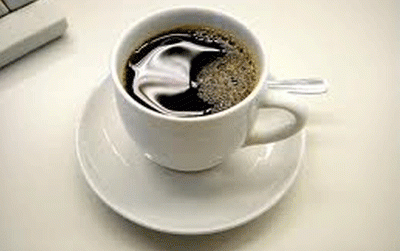
What you eat first thing in the morning sets the tone for your day. After a night of fasting, your body is ready for the right kind of fuel to boost your energy and get your metabolism going. However, some foods can cause discomfort, bloating, or irritation when eaten on an empty stomach—especially acidic ones that can be tough on your stomach lining.....Read Full Article>>
On the flip side, starting your day with a balanced breakfast that includes protein, healthy fats, and fibre can keep your blood sugar steady, sharpen your focus, and give you energy that lasts.
Here are eight foods you should skip on an empty stomach:
1. Citrus fruits
Citrus fruits like oranges, grapefruits, and lemons are packed with vitamin C and antioxidants, making them great for your health. But when eaten on an empty stomach, their high acidity can irritate your stomach lining. This can lead to acid reflux, bloating, or even heartburn. Plus, their tangy flavour can trigger your stomach to produce too much gastric acid, which may cause discomfort.
2. Coffee
For many, coffee is a morning ritual. However, drinking it on an empty stomach can be harsh on your digestive system. The caffeine in coffee can ramp up stomach acid production, which may cause acid reflux, heartburn, or even gastritis if there’s nothing in your stomach to balance it out. On top of that, coffee can dehydrate you, especially if it’s the first thing you drink in the morning.
3. Spicy foods
Spicy foods like chilli or hot sauce might be delicious, but they aren’t the best idea on an empty stomach. These fiery options can increase gastric acid production, which can lead to acid reflux and heartburn. Spices can also irritate the stomach lining, leaving it more susceptible to inflammation and discomfort.
4. Sugary foods
Sugary treats like pastries, sugary cereals, or sweetened drinks might seem like a quick way to start your day, but they can backfire. Eating them on an empty stomach causes your blood sugar to spike rapidly, giving you a short-lived energy boost followed by a crash. This crash can leave you feeling tired and cranky. Sugary foods can also disrupt digestion, causing bloating and discomfort.
5. Yoghurt
Yoghurt is generally considered a healthy snack, but it’s not ideal for an empty stomach. The natural acidity in yoghurt can irritate sensitive stomachs and may reduce the effectiveness of the probiotics it contains. These beneficial bacteria can struggle to survive in the highly acidic environment of an empty stomach.
6. Fried foods
Fried foods like doughnuts, French fries, or fried chicken are heavy and take longer to digest. Eating them on an empty stomach can overwhelm your digestive system, leading to bloating, indigestion, or even nausea. Their high fat content also slows down digestion, making you feel sluggish and uncomfortable.
7. Raw vegetables
Raw vegetables are undeniably healthy, but eating them on an empty stomach can be rough on your digestive system. Their high fibre content and certain enzymes can lead to gas and bloating. Vegetables like broccoli, cabbage, and cauliflower are particularly challenging because they are harder to digest when your stomach is empty.
8. Carbonated drinks
Starting your day with soda or sparkling water isn’t the best idea. The carbon dioxide in these drinks can create gas in your stomach, leaving you feeling bloated and uncomfortable. They can also irritate your stomach lining and disrupt digestion.
Conclusion
Choosing the right foods for an empty stomach is key to starting your day on the right note. Avoiding these eight foods can help you feel more comfortable and energized. Instead, reach for options that are easy on your stomach, like oatmeal, bananas, or whole-grain toast with eggs. These choices will give you a healthy and balanced start to your day.
Health
Mix Raw TOMATOES And ONIONS Together, Chew Them Regularly For These 4 Shocking Benefits
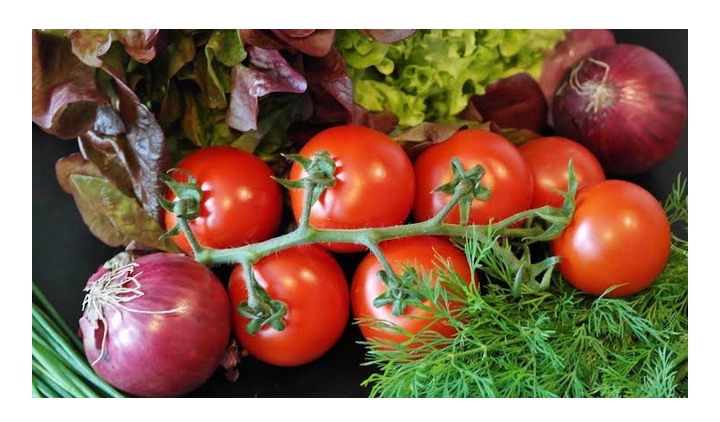
Combining tomatoes and onions in meals can create a powerful nutritional boost with numerous health benefits. Both tomatoes and onions are nutrient- dense foods that complement each other’ s health- promoting properties, from improving heart health to supporting immunity. Here are four health benefits of mixing tomatoes and onions together in your diet:....Read Full Article>>
Heart Health Support
The combination of tomatoes and onions is excellent for heart health. Tomatoes are rich in antioxidants like lycopene, which has been shown to reduce cholesterol levels and lower the risk of heart disease. Lycopene helps protect the heart by preventing oxidative damage to blood vessels, reducing inflammation, and enhancing overall cardiovascular function.
Onions contain sulfur compounds and quercetin, a potent antioxidant that helps improve blood circulation, reduce blood pressure, and prevent blood clots. Mixing these two ingredients together enhances their heart- protective effects, making this a heart- healthy food choice that can help lower cholesterol, reduce blood pressure, and support overall heart health.
Anti- Cancer Properties
Tomatoes and onions have individual compounds with cancer- fighting properties, and combining them can make their effect even stronger. Lycopene in tomatoes is known for its ability to fight off harmful free radicals, which can lead to cancer. Studies suggest that lycopene is particularly effective in reducing the risk of prostate and lung cancers. Onions contain organosulfur compounds that have been linked to reduced risk of stomach, colon, and breast cancers. The flavonoids in onions, such as quercetin, have been shown to have anti- cancer effects as well. Consuming these two foods together provides a powerful combination of antioxidants and phytochemicals that can reduce inflammation and inhibit cancer cell growth.
Boosted Immune System
Together, tomatoes and onions provide a wide range of vitamins and minerals that support the immune system. Tomatoes are an excellent source of vitamin C, which plays a crucial role in immune defense by stimulating the production of white blood cells. Vitamin C also helps the body absorb iron from plant- based foods, further enhancing immunity. Onions contain antioxidants and sulfur compounds with antibacterial and antiviral properties that help the body fight infections. Combining tomatoes and onions in salads, sauces, or soups can help bolster immune function and provide protection against common infections like colds and flu.
Enhanced Digestive Health
Incorporating tomatoes and onions into meals not only enhances flavor but also offers numerous health benefits. Whether enjoyed in a fresh salad, cooked sauce, or as a garnish, this powerful combination supports heart health, boosts immunity, provides anti- cancer properties, and promotes optimal digestion. Adding them regularly to your diet can contribute significantly to overall well- being and prevent a range of health issues naturally.
Health
Regardless of how hungry you may be, avoid pairing these common foods with fish – here’s why.
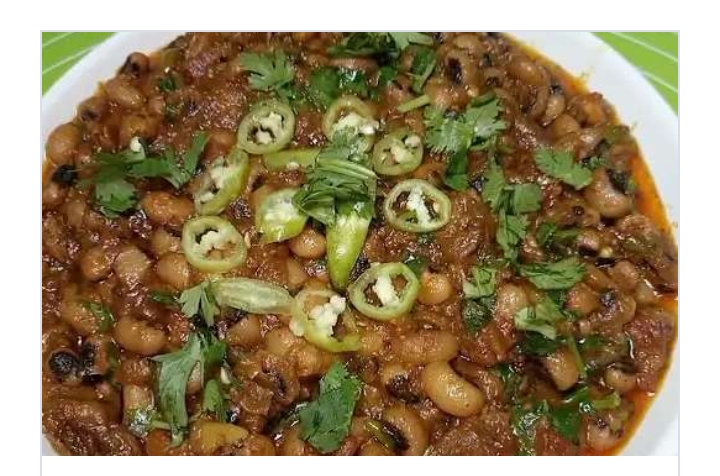
Fish is widely celebrated for being a healthy source of lean protein and omega-3 fatty acids, which promote heart health and boost immunity. However, combining fish with certain foods can cause digestive problems and even diminish its nutritional value. Here are seven foods you should avoid pairing with fish:....Read Full Article>>
Dairy Products
Consuming fish with dairy products like milk, yogurt, or cheese can cause digestive issues. The high protein content in both fish and dairy can disrupt digestion, potentially leading to bloating, stomach pain, and skin reactions. The combination of these two may interfere with smooth digestion, so it’s best to steer clear of pairing them.
Citrus Fruits
While some enjoy adding a citrus touch to their fish, the acidity in fruits like lemons and oranges can negatively react with the proteins in fish, altering its taste and texture. For a more harmonious flavor, try using non-citrus-based seasonings.
Processed and Fried Foods
Combining fish with processed or fried foods can cancel out the health benefits of the fish. Processed foods are often high in trans fats and saturated fats, which can harm heart health and offset the omega-3 benefits found in fish.
Starchy Foods
Pairing fish with heavy starchy foods like potatoes or pasta can result in an overly calorie-dense meal. This combination can also slow down digestion, as starchy foods take longer to break down, putting a strain on your digestive system.
Spicy Foods
Spices can easily overwhelm the subtle flavor of fish. Additionally, very spicy foods may cause gastrointestinal discomfort when consumed with fish, leading to bloating or an upset stomach.
Beans and Legumes
Fish and beans are both rich in protein, but eating them together can cause gas and bloating. The protein overload can be hard for some digestive systems to handle, especially for those with sensitive stomachs.
Coffee
Drinking coffee with fish can interfere with nutrient absorption. Some believe coffee may hinder the body’s ability to absorb mercury found in certain types of fish, which could affect how your body processes its nutritional benefits.
To get the most nutritional value from your fish, pair it with lighter sides like fresh vegetables or salads, and avoid these seven combinations to enhance digestion and overall health.
Health
Cassava Leaves Tea Works Like Magic, See 4 Deadly Diseases It Can Help Flush Out Of Your Body
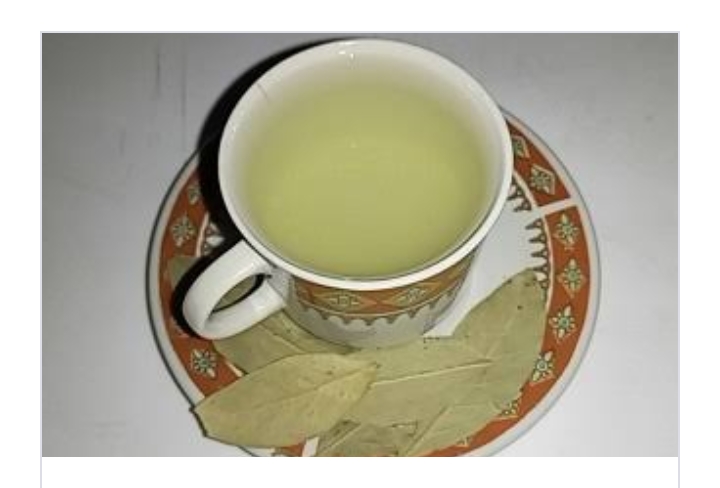
In the world of natural remedies, few plants have been as underestimated as the cassava plant. Known primarily for its starchy roots, cassava is a staple food in many parts of Africa, Asia, and Latin America. However, there’ s more to this plant than just its carbohydrate- rich tubers. The leaves of cassava, often overlooked, hold immense potential as a medicinal powerhouse. Rich in essential vitamins and minerals, cassava leaves offer numerous health benefits when prepared as a tea. In recent years, cassava leaves tea has garnered attention for its potential in combating several serious diseases.
Here’ s an in- depth look at how cassava leaves tea works its ” magic” and the four deadly diseases it can help the body flush out.
Cassava Leaves Tea and Malaria
Malaria, a life- threatening disease caused by parasites transmitted through mosquito bites, affects millions of people worldwide. Cassava leaves tea contains compounds that exhibit anti- malarial properties, potentially helping to reduce the impact of this deadly disease. In regions where malaria is prevalent, traditional healers have long utilized cassava leaves as a remedy for fever and chills, symptoms often associated with malaria. Drinking cassava leaves tea might not replace conventional malaria treatment but could serve as a supportive, natural method for those seeking additional relief. Its antioxidant and anti- inflammatory properties may also help to alleviate the pain and discomfort caused by malaria symptoms, making it a valuable complementary treatment.
Health
Little-known reason you feel tired all the time – and doctor says there’s easy fix

A doctor has taken to TikTok to explain to followers why they could be feeling fatigued all the time – and it’s all down to one reason which might been ignored by many
It’s common to attribute feelings of exhaustion and fatigue to changes in the weather or a hectic lifestyle.
But often it could be due to something else entirely. Despite the clocks having been adjusted a few weeks ago, some individuals may still be adjusting.
However, have you considered your constant tiredness might be due to an overlooked health issue? A doctor on TikTok identified a potential cause for your fatigue, which could be rectified simply by taking supplements or making minor dietary adjustments.
Discussing vitamin B12 deficiency, Doctor Sooj, who has amassed 194,500 followers on the platform, stated: “There are many symptoms associated and could be really non-specific but it does include things like feeling fatigued and tired all the time.
“You can get pins and needles, confusion, memory problems. It can also cause muscle weakness, as well as a sore and inflamed tongue.”
While a vitamin B12 deficiency is not harmful in itself, the NHS recommends immediate medical attention to prevent the issues from becoming permanent.
The deficiency can manifest in a variety of symptoms, some of which may go unnoticed. These symptoms may develop gradually and worsen if left untreated.
Rapid breathing or shortness of breath
Headaches
Indigestion
Loss of appetite
Palpitations
Problems with your vision
Feeling weak or tired
Diarrhoea
A sore or red tongue, sometimes with mouth ulcers
Problems with memory, understanding and judgment
The NHS also states a lack of B12 could cause symptoms which might even impact your brain and nervous symptoms, including:
Numbness
Muscle weakness
Psychological problems, which can range from mild depression or anxiety, to confusion and dementia
Problems with balance and coordination
Pins and needles
Incontinence
You can help treat your deficiency with injections of vitamin B12 which in form is called hydroxocobalamin. You might have these injections every other day for two weeks, or depending on when your symptoms improve.
It’s worth visiting your GP or doctor if you’re concerned as they can advise you on the best thing to do. Since the video was posted, it racked up hundreds of likes and a few comments.
One said: “My B12 got dangerously low during Covid. Now I’m having B12 injections for life.” While another admitted they’ve been having jabs for a few months now.
Health
6 Serious Health Problems That Can Be Managed By Cocoyam Leaves – Don’t Overlook Number 5

Cocoyam leaves, often found in tropical regions, are a popular addition to many dishes and have long been recognized for their medicinal properties. Rich in essential nutrients, cocoyam leaves offer various health benefits and are traditionally used to help manage certain health conditions. Here are some of the diseases and ailments that cocoyam leaves can aid in alleviating:....Read Full Article>>
Anemia
Cocoyam leaves are rich in iron, a crucial mineral for producing hemoglobin, which transports oxygen in the blood. People with iron- deficiency anemia may benefit from including cocoyam leaves in their diet, as it can help boost red blood cell production and alleviate symptoms like fatigue and weakness.
Hypertension (High Blood Pressure)
The leaves are an excellent source of potassium, an essential mineral for maintaining healthy blood pressure levels. Potassium helps balance sodium levels in the body, reducing the risk of hypertension. Regular consumption of cocoyam leaves may aid in controlling high blood pressure naturally.
Diabetes
Cocoyam leaves have a low glycemic index, which means they do not spike blood sugar levels. Additionally, the dietary fiber in cocoyam leaves helps slow down glucose absorption, making them a healthy choice for people with diabetes or those managing blood sugar levels.
Immune System Support
High in antioxidants, vitamins, and minerals, cocoyam leaves support a healthy immune system. The antioxidants help fight off free radicals, protecting cells from damage and potentially lowering the risk of chronic diseases. The presence of vitamins A and C also strengthens the immune system, helping the body fend off infections.
Digestive Health
Anti- Inflammatory Properties
Cocoyam leaves contain compounds that exhibit anti- inflammatory effects, which can help alleviate symptoms of inflammation- related conditions, such as arthritis. Consuming cocoyam leaves may offer relief from joint pain and reduce inflammation in the body.
Incorporating cocoyam leaves into the diet can provide a natural and nutrient- rich way to support health and alleviate various conditions. However, they should be cooked thoroughly to eliminate toxins and maximize their health benefits.
Health
Dear Men! See 5 Ways You Can BOOST Your SEXUAL Health

Maintaining good sexual health is important for overall well- being and confidence. It can also enhance relationships and personal satisfaction. Here are five effective ways men can boost their sexual health.....Read Full Article>>
Stay Active With Regular Exercise
Exercise is vital for sexual health and physical fitness. It improves blood flow, boosts energy levels and reduces stress significantly. Activities like jogging, swimming or even walking regularly can help. Aim for at least 30 minutes of moderate exercise most days of the week…
Eat A Balanced Diet
A healthy diet promotes good sexual health and overall wellness. Foods rich in fruits, vegetables, whole grains and lean proteins support hormone levels and improve circulation effectively. Some foods, like nuts, berries and dark chocolate, are especially beneficial for sexual function. Avoid excessive sugar and processed foods whenever possible.
Manage Stress
High levels of stress can negatively impact sexual health and emotional well-being. Stress can lower libido and affect performance in various ways. Finding ways to manage stress, such as through meditation, yoga or deep breathing exercises, can improve both mental and sexual health. Taking time for hobbies and relaxation is also very important.
Get Enough Sleep
Quality sleep is essential for overall health, including sexual health and performance. Lack of sleep can lead to fatigue and lower testosterone levels, which can affect libido significantly. Aim for 7-9 hours of sleep each night for optimal recovery. Establish a calming bedtime routine to improve sleep quality effectively.
Limit Alcohol And Avoid Smoking
While moderate drinking may not be harmful, excessive alcohol can hinder sexual performance and reduce libido considerably. Smoking also has negative effects, as it can reduce blood flow and lead to erectile dysfunction over time. Cutting back on alcohol and quitting smoking can significantly improve sexual health outcomes.
In conclusion, by incorporating these five strategies into daily life, men can enhance their sexual health and overall well- being. Making small and positive changes can lead to significant improvements over time and boost confidence.
Health
Abuse Of These 3 Drugs Will Destroy Your Kidneys And Your Liver
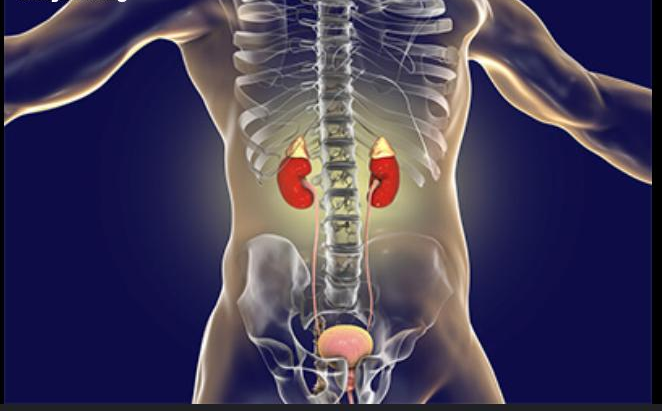
Extraordinary microorganisms have unequivocal and critical physiological positions that they play in your genuine system, such as isolating explicit substances into less or nontoxic substances or constructions.....Read Full Article>>
Since these enemy of microbials devastate both extraordinary and horrendous microorganisms in your body called your microflora.
In any case, that isn’t the justification behind the article. So I’ll essentially go straightforwardly direct.
As of now contemplate what will happen when you discard all your extraordinary microorganisms. You will in this manner acquaint yourself with destructive substances which can consistently wreck your inside structure. So please, expecting that you are taking serums poisons without an answer, stop them for your own benefit.
Towards the completion of this diagram, I will reveal to you why the liver and kidney are the two rule fundamental organs that are harmed by these meds in excess sum or partitions.
As of now, these are the three remedies that you should stop taking in abundance to make an effort not to hurt your liver and kidneys.
1. Ketoconazole:
Ketoconazole is moreover enrolled in the class of prescriptions called hepatotoxic meds (that is, drugs that crush the liver).
For sure, a few clinical consideration specialists have started to weaken the cure of this medicine taking into account the harm it causes to the liver in the standard serving. By and by watch what happens when you take it in abundance, the following impact will be terrible. As a clinical consideration master, I would urge you to use this remedy only for powerful applications (on your skin or other external surface), and not such a huge amount for key use (don’t drink it)
2. Counter agents poisons:
for example amoxicillin and amoxicillin-clauvulanic destructive mix, ampiclline-cloxacillin blend, anti-toxin drug, etc;
I have depicted how individuals join these diverse counter agents poisons to achieve ideal results. Really, you are not simply harming basic organs in your body, you are similarly obliterating huge microorganisms that your body needs to finish critical or urgent physiological reactions. By decimating them, you are placing your prosperity at serious risk.
3. Paracetamol:
Like my friend I inspected above, numerous people take an abundance assessment of paracetamol (up to 25,000 mg) on the grounds that they feel that the ordinary 1000 mg isn’t enough for it. give her the assistance they need….ContinueReading….
This is a disastrous business, since paracetamol produces a metabolite (the breakdown aftereffect of paracetamol) which has unquestionably awful repercussions for the liver and kidneys at high measurements. Truly, paracetamol has a spot with the class of drugs called hepatotoxic prescriptions. Genuinely, if the common piece of paracetamol no longer works for you, mercifully take other elective pain relievers like ibuprofen, ketoprofen, naproxen and diclofenac, etc
The liver and kidneys should isolate the prescriptions to convey the chief piece of the drug that will make the supportive results you need. A couple of meds like ketoconazole and paracetamol produce dangerous fabricated blends in the process which are step by step dropped by the liver and kidneys.
Right now, the clarification your kidneys and liver are the critical organs in peril when you burn-through the recently referenced meds in abundance is because they are the two most huge organs that all out the breakdown of these meds when you take them.
Similarly, when you continue to take a wealth segment for a tremendous time span, you may end up with terminal liver and kidney hurt.
Health
Heart Disease Kills Fast: Why Not Avoid Too Much In Take Of These 3 Things
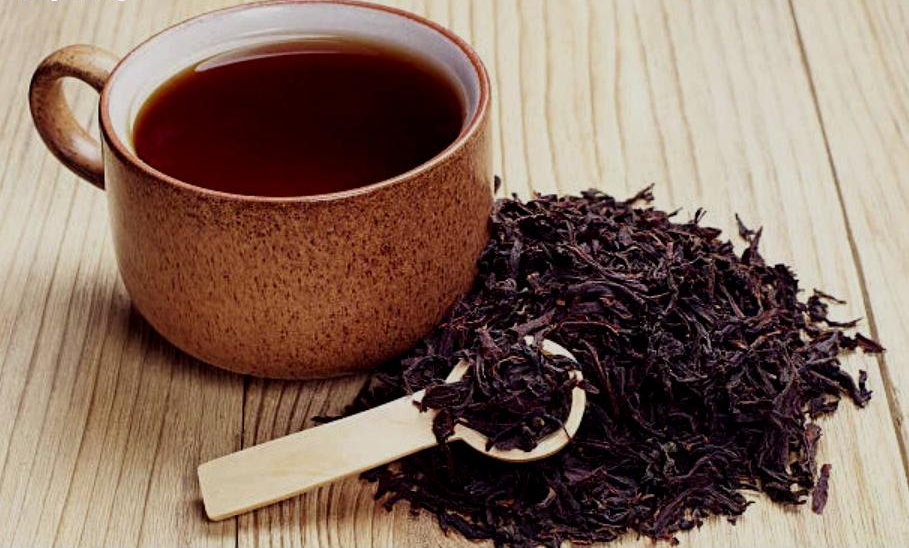
One of the most important organs in the body is the heart, which pumps blood throughout the body. The primary function of this system is to ensure that blood is pumped to all parts of the body. The mammalian heart, which has four chambers and two pumps, is the organ that acts as the central pumping station for the circulatory systems of mammalian organisms.....Read Full Article>>
When it comes to the organs in the body, the heart is among those that are most sensitive. For as long as anybody can remember, coronary heart disease has been regarded as the leading cause of mortality in the United States. A coronary heart issue has the potential to be lethal if it does not get prompt clinical care. Making healthy choices on a daily basis is one of the most effective ways to lower your risk of developing cardiovascular disease and maintain a healthy heart.
A wide variety of heart diseases and conditions, including arrhythmias, cardiomyopathies, congenital heart abnormalities, coronary artery disease, heart infections, and a lot of other conditions, make up the enormous spectrum of heart illnesses and conditions.
If I am concerned that I may also have coronary heart disease, can you tell me what the warning signs and symptoms are that I should watch out for? In the event that your heart is in danger, any one of the following physical manifestations may also be presented with the assistance of your body: recurring problems with the chest.
I feel vulnerable and experiencing dizziness. Magic that causes a lot of confusion a vigorous contraction of the muscle that makes up the heart. experiencing difficulty breathing or a sensation of being short of breath. a state of defeat accompanied by a lack of power and vitality These constellations are associated with a heart that beats at an unusual rhythm.
There is a possibility that you may get severe bloating, nausea, and acid reflux condition problem scenario disease if you take this medication. The sensation of nausea is one. The risk of developing cardiovascular disease may also be increased by a number of other factors.
Tobacco use, excess body fat, high blood pressure, high cholesterol, a lack of physical activity, being male, being of a certain race or ethnicity, and other factors are all risk factors for a variety of diseases. There are components of one’s surroundings that are well-known to increase one’s likelihood of developing cardiovascular issues.
Just a few examples of this are shown below:
One, the Practice of Smoking Cigarettes. Using tobacco is associated with an increased risk of developing cardiovascular disease. Tobacco products such as cigarettes, cigars, and pipes may have a significant negative impact on cardiovascular health if they are smoked in certain ways. Keep as much space as possible between yourself and individuals who smoke, since secondhand smoke is just as harmful to your health as smoking itself.
Numerous scientific investigations have shown a connection between smoking and an elevated threat of cardiovascular disease as well as fatality. Please put down the cigarette right now if you care at all about how your health turns out in the long run. In addition to this, excessive consumption Consuming an unhealthy amount of alcohol reduces fitness levels and has been linked to an increased risk of cardiovascular disease.
Consuming a lot of alcohol on a regular basis is linked to the development of peptic ulcers, just as it is linked to liver damage and cancer. Consuming a lot of alcohol may lead to a condition called cardiomyopathy, which is a disease that affects the muscle of the coronary heart. This condition can be caused by excessive drinking.
Consuming alcohol in excess is another factor that might contribute to an increase in blood pressure. foods that are rich in LDL Consuming harmful substances and drinks is a primary risk factor for coronary heart disease. Other risk factors include smoking and high blood pressure. A diet high in fat may make conditions such as obesity, hypertension, and diabetes worse, which are all risk factors for cardiovascular disease.
These conditions are made worse by the consumption of foods high in fat. Saturated fats are associated with an increased risk of cardiovascular disease, coronary heart attack, and coronary heart failure. Because of this increased risk, it is generally suggested that saturated fats be avoided.
Health
4 Drinks You Should Take Regularly To Clean Your Stomach
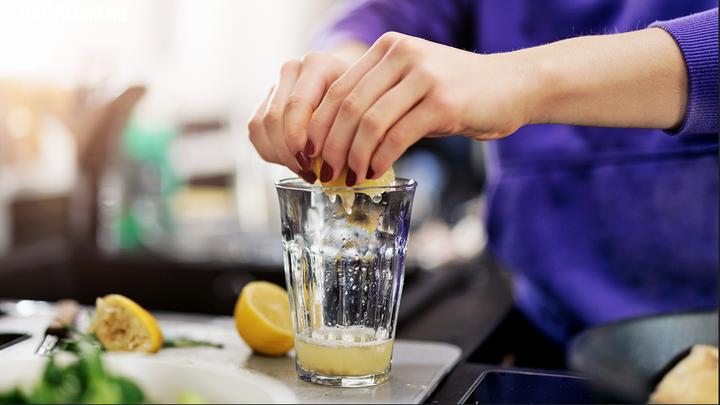
The stomach plays a crucial role in the digestion and storage of food, making it vital for our overall well-being. As food passes through the esophageal sphincter and reaches the stomach, it encounters caustic secretions and chemicals that aid in the digestion process. Given the stomach’s delicate nature, it is essential to take steps to protect its health.....Read Full Article>>
Certain beverages can contribute to stomach cleansing and toxin elimination in their own unique ways. Here are some examples:
1. Ginger tea:
Ginger tea has been associated with various health benefits, including alleviating symptoms of PMS and motion sickness. Regular consumption of ginger tea may aid in toxin
elimination from the digestive tract. Ginger contains natural compounds that can help counteract the effects of certain toxins.
2. Moringa leaf tea:
Drinking tea made from moringa leaves can assist in cleaning the digestive tract. It has shown potential benefits in treating gastrointestinal conditions such as gastritis and ulcerative colitis. The high content of vitamin B complex compounds in moringa aids in digestion, while its antibacterial and healing properties help combat infections. Detoxifying the digestive system is an important step in preventing colon cancer.
3. Garlic:
Garlic promotes digestion and has anti-inflammatory properties that can reduce stomach acid production. It supports a healthy and functional gastrointestinal system, balancing acid production and eliminating unwanted substances. Including garlic in one’s regular diet is recommended for optimal health.
4. Citrus-infused tea:
Some people believe that consuming citrus-flavored tea aids in gut cleansing. Lemon, in particular, can enhance gastrointestinal detoxification, and the soluble fiber pectin found in lemon supports digestive health. Lemon’s antimicrobial properties can help combat infectious diseases and bacteria. Regular consumption of this beverage can be beneficial for maintaining a healthy digestive system.
It is important to note that while these beverages may offer certain benefits, they should be part of an overall balanced diet and lifestyle. Consulting with a healthcare professional is advisable for personalized advice regarding stomach health and dietary choices
-

 Latest News1 month ago
Latest News1 month agoBREAKING: Journalist Who Exposed Army Chief Lagbaja’s Death In Serious Trouble As Military Reportedly Issues Unexpected Order
-

 Latest News1 month ago
Latest News1 month agoSUNDAY Turns BLOODY As Simon Ekpa’s Boys Reportedly Slaughter Dozens Of Soldiers; SEE Details
-

 Health1 month ago
Health1 month agoBitter Leaf Water is Not For You, Should Stop Drinking If You Belong to These Category
-

 Health1 month ago
Health1 month agoAvoid Prostate Cancer It Suddenly Kills, Stop Eating These 4 Foods In Excess
-

 Latest News1 month ago
Latest News1 month agoMohbad’s Wife Is PREGNANT? – Late Singer Wife Finally Breaks Silence On Viral Report, Here’s What She Said
-

 Latest News1 month ago
Latest News1 month agoDrama: “From grace to bush” – Netizens react to ‘Happy boys’ applying for 9-5 jobs (VIDEO)
-

 Latest News4 weeks ago
Latest News4 weeks agoWARNING! ! Shocking Detail: Do You Have MTN Line? They May Shut Down Soon According To MTN CEO Karl Toriola
-

 Health1 month ago
Health1 month ago6 Health Conditions That Chanca Piedra Leaf Can Help Treat


































































